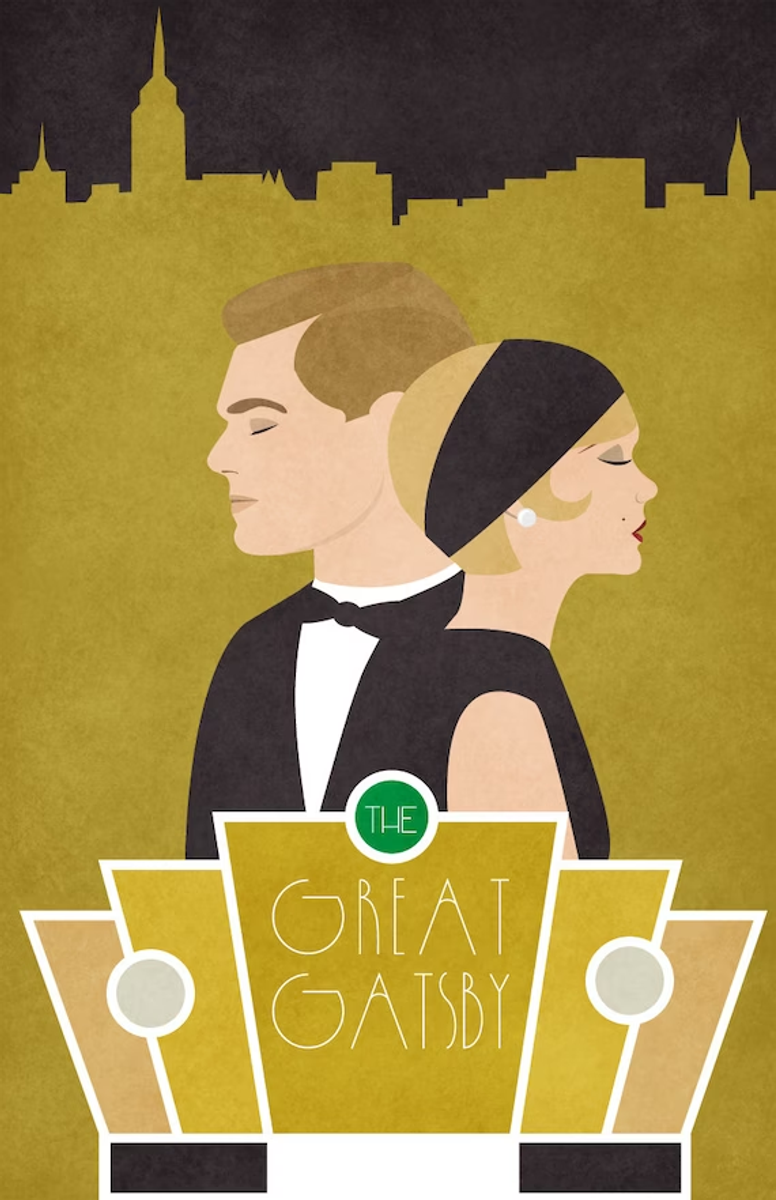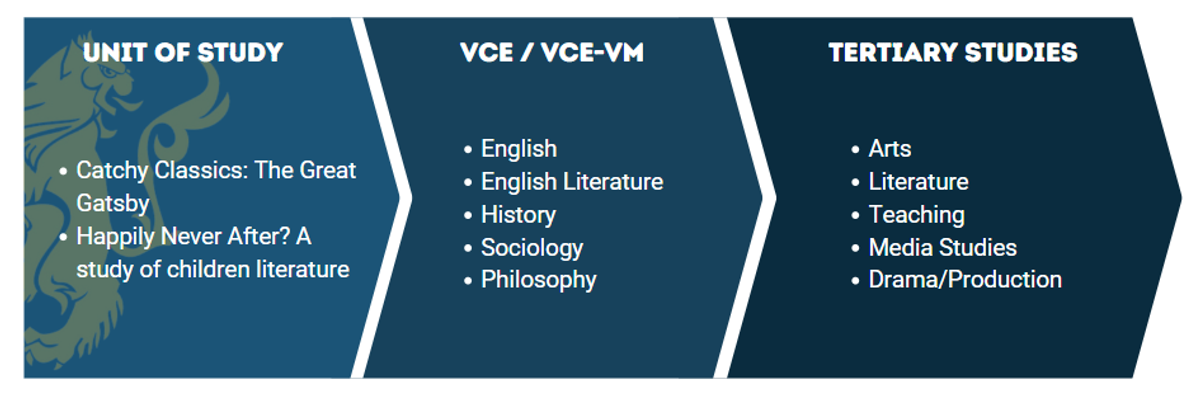(2C) English -Catchy Classics: The Great Gatsby & Happily Never After? A study of children literature

Unit of Study: Catchy Classics: The Great Gatsby
Brief Description: Embark on a voyage of discovery as you enter through different time periods, world's, writing styles and unique characters. Classics have been studied across generations because they are timeless and leave a lasting impact. In this elective, we will be studying Scott Fitzgerald’s ‘The Great Gatsby’. In this area of study, students focus on the interrelationships between the text, readers and their social and cultural contexts. Students explore the text to understand life in the 1920s and ideas relating to the American Dream, wealth and materialism, love and hope. Students develop the ability to analyse language closely, recognising that words have historical and cultural import.
‘Gatsby believed in the green light, the orgastic future that year by year recedes before us. It eluded us then, but that’s no matter—tomorrow we will run faster, stretch out our arms farther. . . . And then one fine morning—’
In Term 3, students will read and explore Scott Fitzgerald’s classic novel ‘The Great Gatsby’ and immerse themselves in the opulent world of the Roaring 20s.
Unit of Study: Happily Never After? A study of children literature
Brief Description: This unit explores the diverse and challenging world of writing for children and young adults. Through a variety of genres—such as picture books, graphic novels, and short stories—you will investigate how books for young people deal with the big themes of growing up and living in a changing and challenging world.
In Term 4, students will read various children's stories and discuss how challenging narratives and ideas are presented to young children. Students will have the opportunity to write and publish their own children's book.
Scaffolding Learning
At the conclusion of this unit of study students will have:
An understanding of key knowledge
- Students will gain the ability to analyse and explain how images, vocabulary choices and language features distinguish the work of classic authors.
- Students will have the skills to form an individual interpretation of a text.
- Students will have an understanding that texts can respond to political, social, environmental or historical issues.
- Students will gain a developed understanding of how people’s evaluations of texts are influenced by the books they read/view as children
- Students will gain the ability to compare and evaluate a range of representations of individuals and groups in different contexts
- Students will gain the ability to analyse and evaluate text structures, themes and languages features of children’s texts and make relevant thematic and intertextual connections with other texts
Attained these key skills
- Students will gain confidence in speaking and listening activities (including the readings of texts).
- Students will have a developed understanding of how to closely analyse figurative language, symbols, motifs and ideas in texts.
- Students will have a greater ability to analyse text structures and language features of literary texts, and make relevant comparisons with other texts.
- Students will develop editing skills, refining work for effect, selecting vocabulary and grammar that contributes to your intention.
- Students will be able to analyse language features and patterns in children’s literature.
- Students will be able to experiment with writing and analysing figurative language in children’s literature.
- They will be able to plan and write texts for children and young adults.
Demonstrated the Victorian curriculum standards and capabilities
- Reading & Viewing
- Language for interaction: (VCELA457)
- Text structure and organisation: (VCELA458)
- Expressing and developing ideas: (VCELA459)
- Literature and context: (VCELT460)
- Responding to literature: (VCELT461), (VCELT461), (VCELT462)
- Examining literature: (VCELT463), (VCELT464), (VCELT465)
- Texts in context: (VCELY466)
- Interpreting, analysing, evaluating: (VCELY467), (VCELY469)
- Writing
- Text structure and organisation: (VCELA470), (VCELA471)
- Expressing and Developing Ideas: (VCELA473), (VCELA474)
- Creating literature: (VCELT476), (VCELT477), (VCELT478)
- Creating texts: (VCELY479), (VCELY480), (VCELY481)
- Speaking & Listening
- Interacting with others: (VCELY485), (VCELY486)
Assessment Tasks
Students will be required to complete the following assessment tasks:
- A literary analysis extended response
- A rewrite of a popular children’s story
- An annotated reflection on how their narrative adds to the genre of children's literature
Additional learning opportunities
- Watching the film, ‘The Great Gatsby’ and engaging with modern interpretations of wealth (Keeping Up With the Kardashians, The Bling Empire).
Resources
- Workbook, pens and highlighters
- A copy of the text ‘The Great Gatsby’ by F Scott Fitzgerald
Pathways
This unit of study could provide students with the following pathway.

